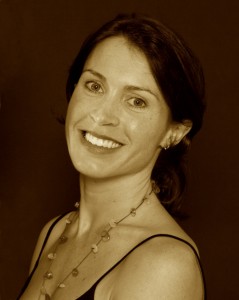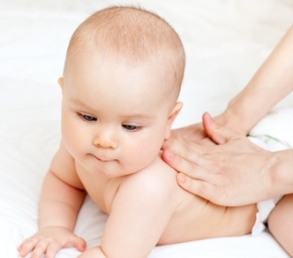 By Tabitha McIntosh (Naturopathic Doctor – Awaken your Health)
By Tabitha McIntosh (Naturopathic Doctor – Awaken your Health)
Have you ever thought about the hundreds of chemicals we are exposed to each day – in products we use to clean our homes, the personal care products we use on our bodies, in the pesticides we spray in our homes, offices, gardens, and playgrounds and in our food, water and air?
Numerous industrial chemicals have been detected in human blood, urine, hair, breast milk, and even umbilical cord blood.
It’s an even scarier thought that the majority of chemicals that are in use have not been adequately tested for their impacts on human health or their particular impacts on children and developing babies – yet – it is now widely recognized that babies and young children are at greatest risk from these chemical exposures. Some can have life-long impacts on an infant’s health, immune function, and ability to learn.
As a mother, I want to do everything I can to keep my family safe from harmful chemicals, and no doubt you feel the same way. Parents can do a lot to protect their children from chemical hazards simply by changing their own personal behaviours and consumption patterns.
So if you are pregnant, planning to become pregnant, are breastfeeding or have young children, it is advisable to pay particular attention to reducing chemical exposures as much as possible. Here’s a ‘starter-list’ of some practical measures you can take to protect yourself and your children from common chemicals: making yours and your family’s life just a little less toxic.
- — Store your food in glass containers whenever possible, as it is the most inert container you can use. Don’t microwave in plastic or with plastic wrap: use glass or ceramic instead. It is especially important to look for BPA-free bottles for your infants (these will have a golden tint); and BPA-free water bottles for your children and yourself. Ask your health care provider for some options of suppliers.
- — Buy and eat organic produce and free-range, organic foods where possible, to reduce your exposure to pesticides, GMOs and fertilizers. This especially applies to animal produce (meat, chicken, eggs) and full-cream dairy products, as these may contain higher levels of some pollutants. If you don’t have access to Organic produce, consider eating fewer meat and high-fat dairy products. In addition, ask your Naturopath or Health care provider about the EWG’s ‘Clean Fifteen’ Vegetable and Fruits List.
- — Avoid the use of insecticides / pesticides in the home or garden, or on your family pets. Examples of common things to avoid: Mortein, Baygone, garden sprays, flea treatments, mosquito repellants that contain DEET etc. There are safe, effective and natural alternatives out there.
- — Throw out your Teflon pots and pans and instead use safer cooking materials like ceramic, stainless steel, and glass.
- — Avoid processed foods, and become a food label detective. Avoid artificial food additives of all kinds, including MSG and artificial sweeteners. Artificial sweeteners are found in most chewing gums, diet foods and drinks, and some children’s medications.
- — Run your tap water through a home-filter, or drink spring water. Filters can reduce levels of common tap water pollutants.
- — Avoid artificial fragrances: in air fresheners, fabric softeners, perfumes, cheap candles, and other synthetic fragrances. Use fresh flowers, essential oils and natural alternatives instead.
- — Reduce the number of cosmetics and other personal care products you use, which can contain harmful chemicals and can be sold with no safety testing. Aim to switch to Natural brands of personal care items: including shampoo, toothpaste, antiperspirants and cosmetics. Skin care products are notorious for containing a slew of dangerous chemicals. See the Environmental Working Group’s Skin Deep Cosmetic Safety Database or ONE Groups’ Chemical Directory for more info.
- — Avoid Nail polishes and Nail polish removers; aerosols like hairspray, conventional hair dyes and bleaches while pregnant and breastfeeding.
 — Carefully consider what you put on your baby’s skin: be cautious of Ingredients such as preservatives, parabens, foaming agents (SLS), fragrances and petroleum-based ointments. Speak to your Health Care provider about some alternative brands and products.
— Carefully consider what you put on your baby’s skin: be cautious of Ingredients such as preservatives, parabens, foaming agents (SLS), fragrances and petroleum-based ointments. Speak to your Health Care provider about some alternative brands and products.- — Carefully consider the toys you choose for your children, as children like to ‘mouth’ things. Avoid toys that have been painted overseas, plastics, adhesives, lip-glosses, nail polishes, etc.
- When renovating your home, look for “green”, toxin-free alternatives in lieu of regular paints, varnishes and floor coverings. Use low VOC paints, varnishes and sealants (available from your hardware) and avoid formaldehyde resins. Ideally, aim to finish the renos, polish the floor boards, and paint the baby room well before you conceive.
- — Eat low-mercury fish and avoid seafood that may be high in other environmental contaminants such as PCB levels. Locally caught fish, prawns and crustaceans from inlets, lakes, rivers, and harbours may be contaminated with PCB’s, so always check with your local fishing authority before eating.
- — Reduce the number of household cleaners you use; and only use natural cleaning products in your home. Most health food stores will have these available or you can search online for them. For more information, visit the Safer Solutions website for keeping your home healthy and green.
* Tabitha McIntosh is a Naturopathic Doctor at Awaken Your Health Clinic in Woolhara, NSW. She will be giving a lecture with Dr. Sarah Lantz (author of Chemical Free Kids: Raising Healthy Children in a Toxic World) on how to reduce chemical exposures at Bondi Beach Public School in August this year. Click here for more information.


